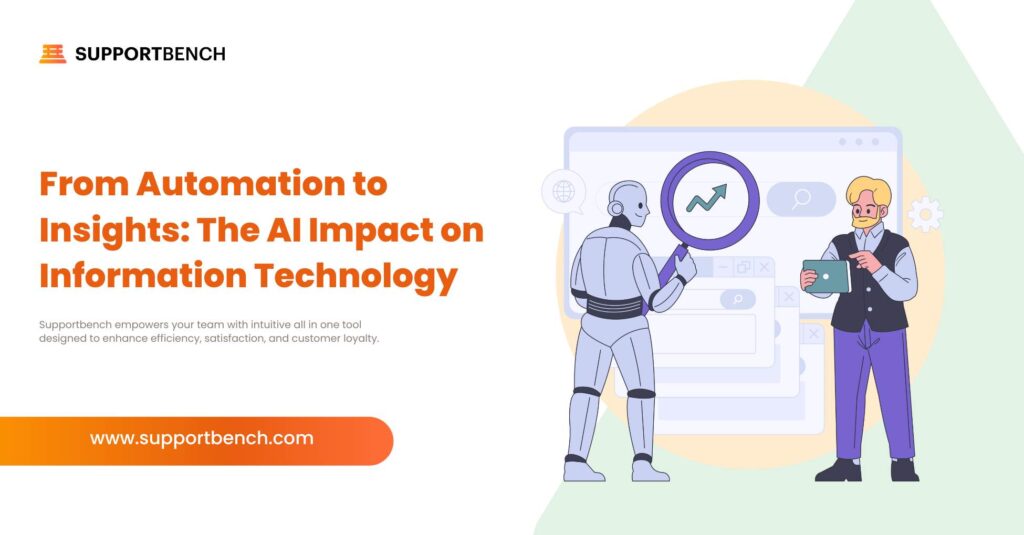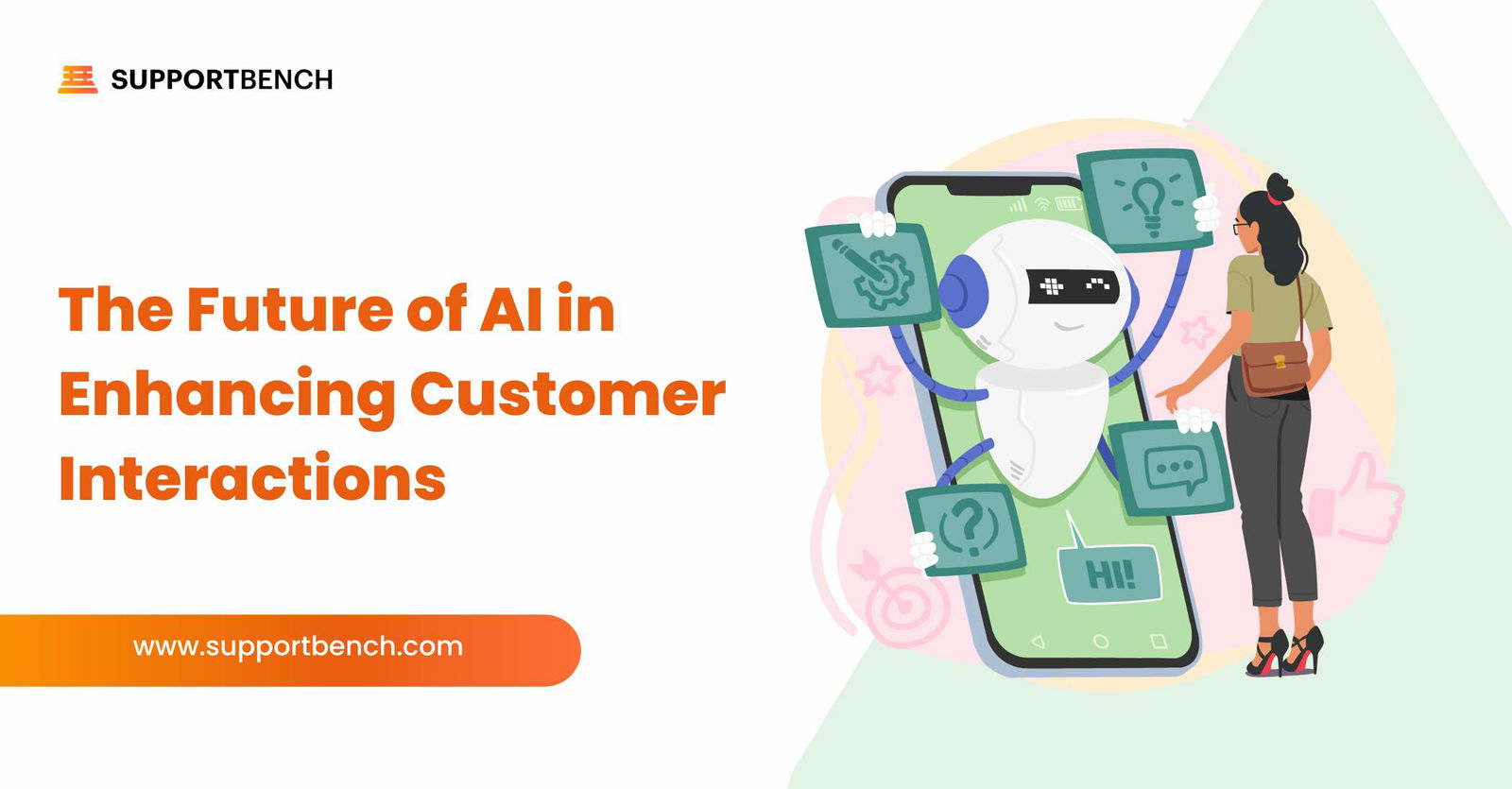Artificial Intelligence (AI) is transforming Information Technology (IT) by driving innovation and changing how businesses operate. From automating routine tasks to enhancing decision-making, AI is reshaping the IT landscape significantly.
As data-driven strategies become essential, AI technologies like machine learning, natural language processing (NLP), and predictive analytics are now vital tools for IT professionals.
This blog examines AI’s critical role in IT, focusing on its impact on efficiency, security, and overall business performance. Discover how AI is revolutionizing IT operations and why it’s key to staying competitive in today’s digital world.
Understanding AI in IT
AI encompasses a range of technologies that allow machines to simulate human intelligence, performing tasks typically requiring human cognition. In IT, AI serves as a powerful ally, enhancing multiple aspects of IT operations. Here’s a closer look at AI’s integration into IT:
Automation of Routine Tasks
AI excels at automating repetitive tasks, freeing IT professionals to focus on strategic initiatives. From automated software testing and system updates to routine maintenance and data backups, AI-driven automation boosts efficiency and reduces human error.
Improved Cybersecurity
AI plays an essential role in cybersecurity. Machine learning algorithms monitor network traffic and user behavior in real time to detect unusual or potentially threatening events. AI systems continuously learn from new data inputs, adapting to evolving security challenges and providing a robust defense against cyberattacks.
Enhanced Data Analysis
With data volumes at an all-time high, AI algorithms help by identifying patterns, trends, and insights within large datasets. This capability enables IT teams to make data-driven decisions, optimize processes, and improve system performance. Tools like predictive analytics allow businesses to forecast issues and implement proactive measures.
Natural Language Processing (NLP)
NLP enables machines to understand and respond to human language, making it invaluable for IT support. AI-powered chatbots can assist users with troubleshooting and provide instant responses to common queries, enhancing customer satisfaction and reducing the workload on IT teams.
Streamlined IT Service Management
AI-driven tools improve IT service management (ITSM) by automating processes like incident management and problem resolution. Leveraging AI enables IT departments to reduce downtime, respond faster, and provide a better experience for end-users.

What is the role of AI in IT?
AI has become essential in IT, transforming how we work and interact with technology. Here are some key roles of AI in IT:
- Automation: AI can automate routine tasks like data entry, report generation, and software testing, allowing IT professionals to focus on strategic initiatives.
- Enhanced Security: AI-powered security tools detect and respond to cyber threats in real time, protecting sensitive data and systems.
- Improved Decision-Making: AI analyzes vast data sets to identify trends, patterns, and anomalies, empowering data-driven decision-making.
- Personalized User Experiences: AI personalizes user experiences by tailoring software and applications to individual preferences.
- Enhancing Collaboration: AI improves collaboration among IT teams by providing tools that streamline communication and project management. AI-driven platforms analyze team interactions and optimize workflows, keeping projects on track and efficient.
- Predictive Maintenance: In IT infrastructure, AI can predict hardware or software failures. By analyzing historical data and system performance, AI alerts IT teams to potential issues before they escalate, minimizing downtime and cutting costs associated with unexpected failures.
Future Trends in AI and IT
As AI advances, we can expect even more innovative applications in IT. Here are key trends to watch:
- Generative AI: AI models capable of creating content, such as code, text, and images, are expanding possibilities in IT.
- AI-Driven Automation: Enhanced automation of IT operations leads to higher efficiency and reduced costs.
- AI-Powered Cybersecurity: Advanced AI techniques improve detection and response to cyber threats.
- AI-Enhanced Collaboration Tools: Intelligent tools are making communication and collaboration smoother and more efficient.
By embracing these trends, IT organizations can stay ahead of the curve and drive digital transformation.

Challenges and Ethical Considerations in AI and IT
While AI offers significant benefits, it also presents challenges and ethical considerations:
Data Quality and Availability
AI systems rely heavily on high-quality data to function effectively. Organizations must ensure that collected data is accurate, relevant, and well-structured. Poor data quality can lead to inaccurate insights and flawed decision-making. Additionally, access to sufficient data for training AI models can be challenging, especially for organizations with limited data resources.
Integration with Existing Systems
Integrating AI technologies into existing IT infrastructure can be complex. Organizations often face compatibility issues with legacy systems and processes. Seamless integration is crucial for maximizing AI tools’ effectiveness and maintaining operational continuity.
Skills Gap
Successful AI implementation requires specialized knowledge that may be lacking within existing IT teams. Organizations may need to invest in training or recruit talent skilled in AI, machine learning, and data analytics to fully leverage AI technologies.
Ethical Considerations
Organizations must address ethical concerns in AI, including data privacy, algorithmic bias, and transparency. Ensuring that AI systems are fair, accountable, and regulatory-compliant is essential to maintaining trust with customers and stakeholders.
Conclusion
The role of AI in IT is rapidly expanding, offering organizations new opportunities to enhance efficiency, improve decision-making, and drive innovation. By automating routine tasks, improving data analysis, and strengthening security, AI empowers IT teams to focus on strategic initiatives that fuel business growth.
However, the journey to AI integration in IT is not without challenges. Organizations must address data quality, ensure seamless system integration, and navigate the cultural shifts that come with adopting new technologies. By proactively tackling these obstacles, businesses can harness AI’s full potential to transform IT operations.
At Supportbench, we recognize the critical role that AI-powered solutions play in modern customer support and IT management. Our platform helps organizations streamline customer interactions, enhance service quality, and optimize IT processes. Leveraging our AI-driven tools enables you to improve operational efficiency, boost customer satisfaction, and position your business for long-term success in today’s digital landscape.












